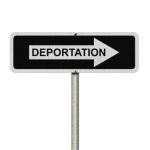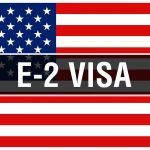Recent Blog Posts

What are the Different Types of Employment Visas in the U.S.?
Of all the different ways foreign nationals enter the United States, employment-based immigration is one of the most common. The U.S. has the largest economy in the world and this is sustained largely by immigrants. For foreign nationals who wish to work in the U.S., there are a number of options. Below, our Atlanta… Read More »

Three Common Mistakes Made in Family-Based Green Card Applications
If you are an American citizen or lawful permanent resident in the U.S. and want to keep your family together, applying for a family-based green card is an important step. When petitioning for a green card through family sponsorship, it is of the utmost importance that all information in your application is accurate. There… Read More »

Things to Know About Marriage-Based Green Cards
Marriage-based green cards are one of the most common ways for immigrants to obtain lawful permanent residency status in the United States. Although the concept sounds fairly straightforward, it involves a legal process that requires detailed documentation, multiple steps, and a high level of scrutiny to ensure that a relationship is valid under the… Read More »

How Does Cancellation of Removal Work?
If you or someone you love is in fear of being deported, it is natural to feel overwhelmed and unsure of what will happen next. Fortunately, in the United States there are options that can help you legally remain in the country. One of these is known as cancellation of removal. This legal process… Read More »

What are Immigration Bond Hearings?
When Immigration and Customs Enforcement (ICE) arrests someone you love, your life can suddenly feel uncertain and overwhelming. Families often have to scramble to find information, as they may not even know where their loved one is being held, if they have any rights, or what to do next. After an ICE arrest, one… Read More »

What to Do After Removal Proceedings are Terminated
As an immigrant, being placed in removal proceedings is one of the most stressful things you could face. You may lose your job and community connections, be separated from your family and ultimately, be deported from the United States. Having removal proceedings terminated can bring great relief, as it may allow you to remain… Read More »

How Long is ICE Detention?
Being detained by Immigration and Customs Enforcement (ICE) is very overwhelming. Whether you fear being placed in detention, or a loved one is already detained, you are likely worried about the time limit for ICE detention. ICE detention can take between 48 hours to 90 days. In some instances, a person may be detained… Read More »

How Can an Atlanta Deportation Defense Lawyer Help?
Deportation proceedings, formally known as removal proceedings, are initiated when the Department of Homeland Security files a Notice to Appear (NTA) with the immigration court. An NTA outlines the immigration violations you are being accused of and notifies you of the date of your first hearing. An immigration judge will then determine whether you… Read More »

Understanding Evidence Categories for EB-1A Visa Applications
In the complicated immigration system in the United States, the EB-1A visa is an option that can offer applicants a fast track to permanent residency in the United States. Applicants must show that they have an extraordinary ability in their field. When proving this extraordinary ability, you must also present strong evidence that supports… Read More »

What are Expert Advisory Letters and How Can You Get One?
Expert advisory letters, also known as expert opinion letters, are formal documents written by a recognized authority in support of an immigration petition. Expert advisory letters are used to prove an applicant’s expertise, authority, or achievements to the U.S. Citizenship and Immigration Services (USCIS). These letters carry a great deal of weight as they… Read More »
